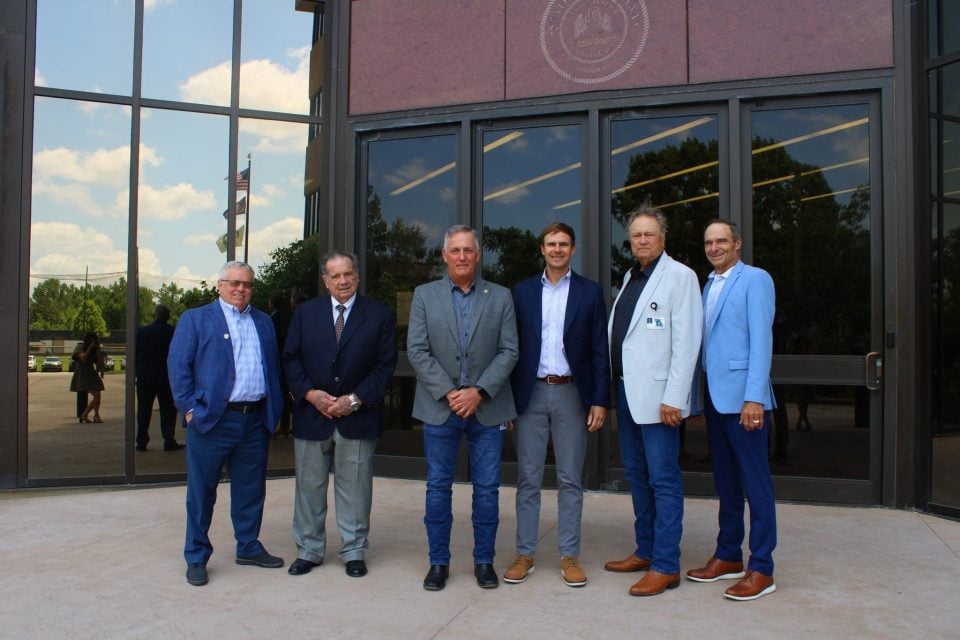
INSTANT IMPACT
November 18, 2015
The Times misidentifies Whitney in ballot
November 18, 2015Think you could never be a victim of investment fraud? Would you actually recognize a scheme before being swindled.
Nearly 11 percent of adult Americans were estimated to be victims of financial fraud every year, according to data from a report released by the Financial Fraud Research Center.
The 11 percent figure is the average of prevalence rates from 10 studies between 1991 and 2011. The yearly rates for each study ranged from 4 percent to 16.5 percent.
“Investment fraud is costing American investors more than $20 billion a year,” said Nancy Boudreaux, investor education trainer with the Securities Division of the Louisiana Office of Financial Institutions. “But that’s not even the bad news. The bad news is that it’s thought to be much more than that because investment fraud is rarely reported.”
That fact makes financial fraud prevalence notoriously difficult for statisticians to track. Victims rarely report incidents to authorities or even admit they were defrauded.
But there are red flags that most people don’t know about that investors need to be wary of when looking for a deal to make extra money.
Boudreaux laid out three steps to take when considering an investment that people can take to protect themselves. She said the first step is to accept that anyone can be a victim of fraud.
The average target for investment fraud is 48 years old or older, particularly because older people have more money. Fraudsters often go after recent retirees and people who are going through a divorce. Divorcees are targeted because so many assets are usually being exchanged, creating a confusing atmosphere.
People who are expecting large sums from inheritance or legal settlements are targeted by thieves as well. Also targeted are those who have recently experienced the death of a loved one. Boudreaux said studies have even shown that people who are bereaved can experience clouded judgement for up to two years.
What is important to note, Boudreaux said, is that victims tend to have an above average knowledge of investments.
Many fraudulent financial professionals will target small community groups, like churches and social clubs, Boudreaux said. They will target one person, then ask if they know anyone else who would be interested, usually someone else in the group.
Fraudsters will also go after people who have recently attended a free meal investment seminar. Free meal investment seminars are those offering a low-risk, high-return investment product that lure people into the meeting with a free meal, usually at a hotel. The information is then sold to financial professionals who are looking for a list of people who have money to spend, Boudreaux said.
Also, many investment scams abound during times of natural disaster or economic downturn, Boudreaux said, “… Because people get desperate. And desperation is a terrible mindset for investment.”
The second step to protecting yourself, Boudreaux said, is to recognize the red flags of investment fraud.
All investment professionals and their products sold in Louisiana must be registered with the Louisiana Office of Financial Institutions. This includes out-of-state investments.
“If they are not registered, that’s a huge red flag,” Boudreaux said. “Every single con artist that they’ve arrested and convicted [in Louisiana] were not registered and they were selling unregistered products.”
Wary investors can request a kind-of background check on investment professionals and their products by asking the investor for either their Central Registration Depository (CRD) number or their full legal name and sending the information to the OFI at complaints@ofi.la.gov for a full report. Investors can also call 1-(877) 516-3653.
The CRD report covers the financial professional’s background, certifications, criminal history, pending arbitration, and employment history with records of termination, disciplinary actions and customer complaints.
Also, ask the OFI if the investment professional and their product are both legally registered to be sold in Louisiana. This includes out-of-state solicitations.
Some products are exempt from registration requirements, Boudreaux said. If an investment professional says that, Boudreaux said, investors ought to confirm that with the OFI.
Boudreaux said every state has an office similar to Louisiana’s OFI, so if one is looking into an out-of-state investment, he or she ought to check with that state’s equivalent for registration status.
The other red flags those wary of being bilked should look out for fall along the lines of the old adage “If it’s too good to be true, it probably is.”
Investors should be wary of investment professionals who offer unusually high profits, Boudreaux said. But lately, criminals have taken to offering only slightly higher profits than the market rates of return.
Boudreaux said another thing to be wary of are products that guarantee 100 percent liquidity of the capital investment or access to interest earned at all times. Investors should read the fine print to look out for exorbitant fees for that access.
She also said any person promising too low a risk is someone to be leery of.
Unfortunately, many people may know about safe investing, but believe they would spot a scam before putting any money in on it.
“The biggest problem that I have in my job is that people think that this does not apply to them,” Boudreaux said. “They think, ‘This is for stupid people. Only stupid people fall for scams.’ Not so. Not so.” •




